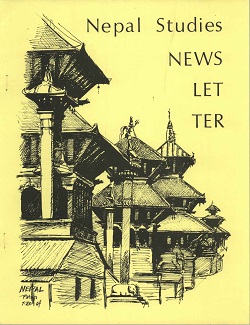The Vulnerable State and Technical Fixes: An Analysis of Official Climate Change Discourses in Nepal
Author Biography
Pearly Wong is a Fulbright grantee in a joint PhD program of Cultural Anthropology and Environment and Resources with the University of Wisconsin-Madison. Her current research interests are in development, environment, sustainability, and intersectionality, through a decolonizing lens. Her dissertation examines how community actors in semi-rural Nepal are enacting their understandings of sustainability and development, and how those understandings are inflected by gender, age, and caste. She will focus on how these experiences converge or diverge from the mainstream discourses of ‘sustainability’. Prior to joining the university, she worked for three years in community development in Nepal and Cameroon.
Abstract
I conduct discourse analysis of seven selected official climate change policies and documents of Nepal. In the first part of my analysis, I draw from international climate justice discourses to analyze how policy makers construct Nepal’s position in the global arena, in relation to the issue of climate change. In the second part, I draw from political ecology and anthropological understandings of ‘vulnerability’ and ‘adaptation’ to analyze how policy makers construct those terms in the context of Nepal. The result shows that Nepal has adhered to the ‘vulnerability’ and ‘transition’ discourses, which serve as important tools to advocate for financial support from the international climate change regime. Driven primarily by international processes and guidelines, the climate change policies and documents in Nepal project a heavily technocratic approach with little socio-cultural considerations. Vulnerability is understood as a static property and assessed based on sectors and geographic areas, while adaptation is understood as series of actions to be implemented. Overall, the policies are at risk of perpetuating the existing systemic ills, as well as impeding imaginaries to pursue more radical socio-political and cultural change as effective adaptation measures.
Acknowledgements
The author wishes to express her sincere gratitude to the reviewers for their valuable suggestions to improve the article, and to Professor Maria Lepowsky for her invaluable inputs to the first draft of the paper, as well as Professor Michael Bell for his constant guidance and support to improve the paper. The author also wishes to thank the Dor Bahadur Bista Prize Committee for reading and awarding the paper, leading to her submission of the manuscript to the journal.
Creative Commons License

This work is licensed under a Creative Commons Attribution-Noncommercial-No Derivative Works 4.0 License.
Recommended Citation
Wong, Pearly. 2020. The Vulnerable State and Technical Fixes: An Analysis of Official Climate Change Discourses in Nepal. HIMALAYA 39(2).
Available at:
https://digitalcommons.macalester.edu/himalaya/vol39/iss2/5


